Overview
In order to ensure that all students are adequately prepared for success in college and careers, states and districts across the country are working to provide multiple educational pathways to better meet the needs of students, employers, and the economy. In recent years, states and district have been working to build career pathways to provide students with education and workforce preparation opportunities linked to additional training and jobs.
This webinar described the value of career pathway systems, showcased leading state and district examples, and introduced the College and Career Readiness and Success (CCRS) Center’s new Career Pathways Modules, which provides tools and resources for the development and implementation of a career pathways system.
Presenter Biographies
 Ms. Bater is Program Administrator of Linked Learning for Long Beach Unified School District (LBUSD). She oversees 42 High School Linked Learning Pathways and collaborates with Post-Secondary partners to develop seamless transitions to college and career options. Ms. Bater coordinates two Career Pathways Trust Grants in partnership with Long Beach City College and California State University, Long Beach to establish career pathways in Health Science and Advanced Manufacturing, K-16. Additionally she serves as Chairman of the Board for Long Beach CALL; a new intermediary. Ms. Bater has been involved in Linked Learning implementation at both the site and District level since 2009 and serves on the Linked Learning District Initiative Team that supports the development of Linked Learning Pathways throughout the state.
Ms. Bater is Program Administrator of Linked Learning for Long Beach Unified School District (LBUSD). She oversees 42 High School Linked Learning Pathways and collaborates with Post-Secondary partners to develop seamless transitions to college and career options. Ms. Bater coordinates two Career Pathways Trust Grants in partnership with Long Beach City College and California State University, Long Beach to establish career pathways in Health Science and Advanced Manufacturing, K-16. Additionally she serves as Chairman of the Board for Long Beach CALL; a new intermediary. Ms. Bater has been involved in Linked Learning implementation at both the site and District level since 2009 and serves on the Linked Learning District Initiative Team that supports the development of Linked Learning Pathways throughout the state.
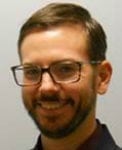 David Blumenthal is a Researcher at American Institutes for Research (AIR). His work focuses on helping schools, districts, and states set up systems to support students in meeting educational milestones such as on-time graduation and college and career readiness. David’s work includes policy analysis, program evaluation, professional development and technical assistance. As a member of the College and Career Readiness and Success Center, David leads the development of tools, articles, and guides for states to enhance their policies and practices for college and career readiness. He has previously written about how states have approached Education and Secondary Education Act Flexibility Requests to support college and career readiness for all students, how states are implementing competency-based education in K-12 education, and how states can implement career pathways systems. He earned his Bachelor’s Degree in Public Policy Studies from Duke University and a Master’s of Science from the School of Public Service at DePaul University.
David Blumenthal is a Researcher at American Institutes for Research (AIR). His work focuses on helping schools, districts, and states set up systems to support students in meeting educational milestones such as on-time graduation and college and career readiness. David’s work includes policy analysis, program evaluation, professional development and technical assistance. As a member of the College and Career Readiness and Success Center, David leads the development of tools, articles, and guides for states to enhance their policies and practices for college and career readiness. He has previously written about how states have approached Education and Secondary Education Act Flexibility Requests to support college and career readiness for all students, how states are implementing competency-based education in K-12 education, and how states can implement career pathways systems. He earned his Bachelor’s Degree in Public Policy Studies from Duke University and a Master’s of Science from the School of Public Service at DePaul University.
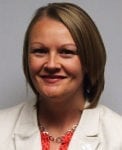 Since 2005, Carolyn George’s work at the Ohio Department of Education has included literacy improvement, extended learning opportunities and career development. She facilitates workshops and training sessions for teachers, counselors and other educators. Carolyn has a bachelor’s degree in middle childhood education and a master’s degree in public administration. Currently, she administers the Career Connections initiative for the department’s Division of Learning.
Since 2005, Carolyn George’s work at the Ohio Department of Education has included literacy improvement, extended learning opportunities and career development. She facilitates workshops and training sessions for teachers, counselors and other educators. Carolyn has a bachelor’s degree in middle childhood education and a master’s degree in public administration. Currently, she administers the Career Connections initiative for the department’s Division of Learning.
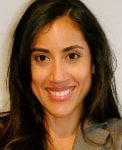 Laura Jimenez is the Director of the College and Career Readiness and Success Center, a federally-funded national technical assistance center that helps states better inform, align, and support efforts to ensure that all students are ready for success in college and careers. Laura recently served as a Special Assistant at the U.S. Department of Education, where she advised the Secretary and Assistant Secretary on one of the Department’s major college and career readiness initiatives, ESEA flexibility, which grants waivers to states of key provisions of the ESEA in exchange for State-led reforms in the areas of standards and assessments, accountability and educator evaluations. Laura also oversaw efforts to develop policies and provide technical assistance to States regarding special populations, including American Indian/Alaska Native students, English Learners, children in foster care, students who have dropped out of school, homeless children and incarcerated youth.
Laura Jimenez is the Director of the College and Career Readiness and Success Center, a federally-funded national technical assistance center that helps states better inform, align, and support efforts to ensure that all students are ready for success in college and careers. Laura recently served as a Special Assistant at the U.S. Department of Education, where she advised the Secretary and Assistant Secretary on one of the Department’s major college and career readiness initiatives, ESEA flexibility, which grants waivers to states of key provisions of the ESEA in exchange for State-led reforms in the areas of standards and assessments, accountability and educator evaluations. Laura also oversaw efforts to develop policies and provide technical assistance to States regarding special populations, including American Indian/Alaska Native students, English Learners, children in foster care, students who have dropped out of school, homeless children and incarcerated youth.
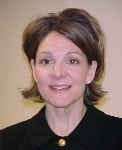 Sharon Lee Miller serves as Director of the Division of Academic and Technical Education (DATE) within the U.S. Department of Education’s Office of Vocational and Adult Education (OVAE). DATE is responsible for administering one of the Department’s largest formula grant programs, which currently distributes about 1.2 billion annually to states under the Carl D. Perkins Career and Technical Education Act of 2006 (Perkins IV). The division also administers discretionary grants to improve the quality of career and technical education for Native Americans, Native Alaskans, and Native Hawaiians; gathers data for national accountability and for state and local program improvement; and conducts national initiatives that improve the rigor and relevance of career and technical education programs. A native of Schenectady, New York, Sharon holds a Ph.D. in Educational Theory and Practice from the University at Albany in New York State. Her OVAE work experience includes oversight of research, development, and evaluation studies on issues pertaining to career and technical education.
Sharon Lee Miller serves as Director of the Division of Academic and Technical Education (DATE) within the U.S. Department of Education’s Office of Vocational and Adult Education (OVAE). DATE is responsible for administering one of the Department’s largest formula grant programs, which currently distributes about 1.2 billion annually to states under the Carl D. Perkins Career and Technical Education Act of 2006 (Perkins IV). The division also administers discretionary grants to improve the quality of career and technical education for Native Americans, Native Alaskans, and Native Hawaiians; gathers data for national accountability and for state and local program improvement; and conducts national initiatives that improve the rigor and relevance of career and technical education programs. A native of Schenectady, New York, Sharon holds a Ph.D. in Educational Theory and Practice from the University at Albany in New York State. Her OVAE work experience includes oversight of research, development, and evaluation studies on issues pertaining to career and technical education.
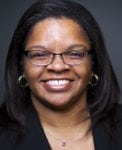 GeMar Neloms is a Senior Technical Assistance Consultant with the American Institutes for Research. In her role with the College and Career Readiness and Success Center (CCRS Center) she provides technical assistance, training and content expertise to support the capacity building of State Educational Agencies and Regional Comprehensive Centers. Her primary roles are in product development and technical assistance across all focus areas for the CCRS Center. Prior to joining AIR, GeMar has consulted to and worked for national and local organizations in areas that include childhood obesity, education, youth, workforce and leadership development, health equity and human services. In addition, she has extensive experience in organizational capacity building, including strategic planning, professional development, strategic and collaborative partnerships and resource, board and program development. GeMar earned her Master of Public Administration from the Maxwell School of Citizenship and Public Affairs at Syracuse University and a Bachelor of Arts from Oberlin College.
GeMar Neloms is a Senior Technical Assistance Consultant with the American Institutes for Research. In her role with the College and Career Readiness and Success Center (CCRS Center) she provides technical assistance, training and content expertise to support the capacity building of State Educational Agencies and Regional Comprehensive Centers. Her primary roles are in product development and technical assistance across all focus areas for the CCRS Center. Prior to joining AIR, GeMar has consulted to and worked for national and local organizations in areas that include childhood obesity, education, youth, workforce and leadership development, health equity and human services. In addition, she has extensive experience in organizational capacity building, including strategic planning, professional development, strategic and collaborative partnerships and resource, board and program development. GeMar earned her Master of Public Administration from the Maxwell School of Citizenship and Public Affairs at Syracuse University and a Bachelor of Arts from Oberlin College.


